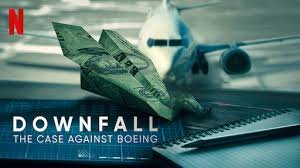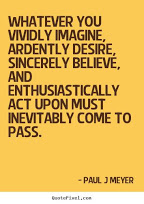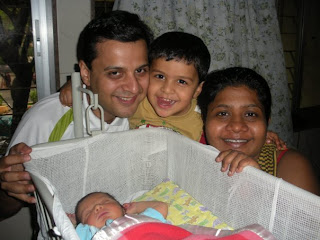
Category: Money
Can Money Buy You Peace and Happiness ?
Money buys you freedom in the material world. It’s not going to make you happy – but it will remove the set of things that could get in the way of being unhappy. It’s not going to solve your health problems, it’s not going to make your family great, it’s not going to make you fit, it’s not going to make you calm. But it will solve a lot of your external problems. It’s therefore important to go ahead and make money. You can save money, you can choose to live a little below your means, and you can find a certain freedom. That will give you the time and energy to pursue your own internal peace and happiness. The solution to making everybody happy is to give them what they want.
Source : Adapted from “The Almanack of Naval Ravikant”, by Eric Jorgenson
A Talk on GST , By Shri Jayant Sinha
A talk on GST by Shri Jayant Sinha, Minister of State, Civil Aviation At Tip Top Plaza, Thane. 14th July, 2017
- GST call centers for support in every place
- 8 central and 9 state taxes have been merged into GST. Indirect taxes
- GST is a destination tax
- Tax credit chain structure is formed
- Alignment of invoices, invoice matching will bring about transparency
- Complete Digitization of Process
- Comparable to Aadhar meant for individuals
- Consolidation of supply chain. Will make the system more efficient
- Optimization of logistics, of manufacturing and warehousing. Reduction in cost structures. Will make the country competitive
- State check posts have been eliminated. From 10 to 30 % reduction in transport time
- More than 300 crores invoices per month will be uploaded on the GST system. Big Data. No other comparable data volume in the world.
- Policy making will improve with all this Big Data available.
- Fool proof compliance will lead to improvements in tax collection. Tax to GDP ratio is presently 16-17%. China is at 21%.
- Increase in tax collection will help improve infrastructure, education, Heath care, defence.
- 21 lac crores is the annual expenditure of Central goverment. Revenue is 15.5 lac crores. Expenses are higher than revenue.
- With GST fiscal deficit will reduce.
- Changes in constitutional structure carried out. It is a victory of Indian democracy. It couldn’t have been possible in other federal democracies such as US, Australia, Canada.
- Similar to political integration that was carried out by Sardar Vallabhbhai Patel. GST has brought about economic integration.
- Brought about a change in which business is conducted in the country.
- Input tax credit needs to be incorporated in the costing
- Refund on tax credit will be refunded in 7 days, once filings start from September
- HSN code is a global classification. In case there is a need for correction, HSN mapping will be dynamically updated.
- Every GSTN account will be rated on compliance.
- Ministry of finance has prepared an app for HSN code.
- ICAI has a youtube channel on GST
Set Goals…
“If I have seen far, it is because I have stood on the shoulders of Giants”. God has been kind. I feel blessed to have been born in a wonderful and loving family; to have the best of education, and teachers who have touched moved and inspired; friends who have always stood by my side and encouraged; and colleagues who are supportive.
The one thing that has made a difference to my life, it is the habit of setting goals and an unwavering faith is Paul Meyer’s quote, “Whatever you vividly imagine, ardently desire sincerely believe and enthusiastically act up on must inevitably come to pass.”

Life was pretty much usual and routine, until one evening in the year 2006, when I met up with my childhood buddy, Vivek Savla. Vivek attended a program on Leadership and Management, and shared with me his learning. He asked me what my goals were. The first thing that came to my mind was about our manufacturing business, and I told him that my goal was to achieve a certain number in business, work hard, to be the best in the field. What else? he asked. I said I wanted to be happy, have a great life, have lots of money, take care of the family. He looked up to me and said, who doesn’t want that? That’s not a goal. That’s wishful thinking.
Honestly, I was lost, I really didn’t know nor did I understand what my goals were. Like me, many of us don’t realize the importance of goals. We don’t have goals because we don’t know how to set them. Often, it is the fear of failure that stops us from setting our goals.
Imagine watching a football game, with 2 teams and 22 players on the field playing the game – a football game with no goal posts. Imagine leading a life, where each day all that we do is get up in the morning, have breakfast, go to work, come home, watch television and go to sleep; wishing and hoping that tomorrow things will get better for us. But that seldom happens, and will not until we take control of our lives and our goals. It was that evening with Vivek, that I learned the greatest lesson of my life – “Set Goals”.
Goals give a sense of meaning and purpose to our life. Goal setting, along with careful planning provides a sense of direction to keep us focused on what we want and to work towards its achievement.
Our life has many facets – all of these can be classified in 6 major areas; personal, professional, spiritual, physical and mental, family and social, financial. For a meaningful and successful life, we should set goals in all of these areas.
For example, my personal goal is be a bestselling author, a motivational speaker, and coach. My professional goal is to take our company to a leadership position in the field of mixing equipment in India and across the world. My spiritual goal is to remain calm and 
Written goals are the seedbeds of accomplishment. The important thing while setting goals is that you need to write them, because writing your goals forces you to crystallize and clarify your thinking. It is said that the human mind has more than 60,000 thoughts each days. Writing down the thoughts which matter, helps you focus on what is necessary and keeps you on course. Written goals form the basis of measuring progress. Written goals produce motivation. Written goals form the basis of an action plan. Above all, written goals stimulate visualization.
Goals to me are SMART dreams. By SMART, we me Specific, Measurable, Achievable, Realistic and Time Bound. A goal has be specific, it has to be clearly defined. A goal has to be quantifiable – something that can be measured, it has to be achievable and attainable within a lifetime, it has to be realistic – something that can be experienced in reality. Above all, the goal is a dream with a deadline for achievement. It is time bound.
How then do you set goals and write them? When you begin to set goals, write down your dream list. A dream list will have everything that you wanted to have – a loving family, a big house, promotion at work, more money; a dream list will have everything you would like to do – grow you business to the next level, enjoy a vacation at your favorite destination. Just write down everything that you would like to have and do, as if there are no limitations at all.
Once you have written your dream list, you need to write them down as your SMART goals.
For example, my dream is to have a BMW car. But my SMART goal is “To drive my own BMW, 5 Series, White Color, by December 22, 2017”. Specific, Measurable, Achievable, Realistic and Time Bound.
I am often asked, “If it was so easy, why don’t most people achieve their goals?”
The answer to this question is explained in my favorite quote, by Paul Meyer, “Whatever you vividly imagine, ardently desire, sincerely believe and enthusiastically act up on must inevitably come to pass.”
The starting point of attainment of all goals is having an ardent desire. Your desire for the goal must be so intense that it will energize you to take action. It will give you the inner strength and drive to overcome any obstacle that lies between you and your goal.
The greatest obstacle that lies between you and your goals, is your lack of self belief. For achieving your goals, you need to believe in yourself and in your abilities. To overcome the negative thoughts and emotions that may crop in, you need to take complete responsibility for your situation. Once you accept total responsibility for your life, there are no limits on what you can be, do or have. Every step that your take with responsibility towards your goals builds your belief that you can set and achieve even bigger goals in the future.
Often people set goals, but don’t achieve them. This is because they don’t take the action required to achieve to goals. The most important aspect of achieving your goals is taking action, with enthusiasm. Having set your goals, you need to create an action plan for their achievement. You need to prioritize your goals, make a list of all tasks that have to be completed for accomplishing the goal, schedule time and set deadlines, create measures and standards to track progress, build the competency and skills required for achieving the goals, exercise self-discipline, identify obstacles and their possible solutions, identify people, groups and organizations who can help you in achieving your goals. Work hard to achieve your goals. There is no substitute to hard work. Action with Passion, Patience and Persistence is the key to achieving your goals.
My personal experience is that when you are absolutely clear about your goal, you do not even need to know where and how to achieve it. By simply deciding what you want, you will begin to get attracted towards your goal and your goal begins to move towards you.
Set Goals and take charge of your life. I’ll be happy to have achieved my goal through your’s.
God Bless
Life at Half Time
As another year of life goes by, the thought and realization that you are mid-way through life begins to dawn upon. Getting out of the thirties doesn’t hit you as much as the thought of entering into the forties. It seems to be the time, when life begins to question you –
What have you achieved?
What have you contributed?
Have you made the difference?
And above all – where do you go from here?
At “Half Time”, you need a “Time Out”. As we continue our journey in search for the answers – it’s time to reflect on the many gifts of life.
Thank God
One is thankful to God for his blessings of a loving and caring family, encouraging friends, inspiring teachers and supportive colleagues. “If I have seen far, it is because I have stood on the shoulders of giants.”
Set Goals
What we are today comes from our thoughts of yesterday, and our present thoughts build our life of tomorrow. Our life is the creation of our mind. Set Goals. “Whatever you vividly imagine, ardently desire, sincerely believe and enthusiastically act upon, must, inevitably come to pass.”
Never Give up
The journey of life has to be in pursuit of excellence. No matter how good you are, you can always get better – and that’s the exciting part. Never, never, never…never give up. “Koshish karne waloon ki kabhi haar nahin hoti.” (The one who tries, never fails).
Be Equanimous
Life is a journey – of ups and downs, of joys and sorrows. Life’s greatest challenge is learning to be equanimous in both pleasure and pain. The true measure of progress is our state of consciousness and the change this brings about in our thoughts, behavior, attitude, actions and responses. “Adversity introduces a man to himself”.
Life Comes Full Circle
Over the many years, one has realized that life is a great equalizer; what you give is what you get. Life is too long. In the end, life comes full circle. Circumstances and people will come back. Remember, “There is no witness so terrible or no accuser as powerful as conscience.”
Time is Precious
Money is a by-product of hard, honest work. Health is wealth. Our greatest gift and most precious asset is “Time”. And, while we may want to believe that we are at half time, none of us knows when the Referee decides to blow the whistle.
Have Faith
We often regret when things don’t happen as we plan them, only to realize later that it all happens for a reason. There is a popular Malayalam quote, “Njan pathi, daivam pathi” – it means, I need to do my half, the rest shall be done by the Lord.
Where Do You Go From Here?
Our life is on the line every single day. Each day, we script our story – through thoughts, words and actions. Every day we build our legacy, and everyday our eulogies are being written.
Going forward, one prays for good health, peace, and prosperity for self, friends, family; knowledge and values for children; and seeks blessing to be a good human being, a leader with the ability to touch, move, inspire and make a difference to the lives of those around. “Life is not about keeping or settling scores. It’s about understanding people the way they are. Above all, it is about choosing to use our life to touch someone else’s in a way that could not have been possible otherwise.”
“Success is in the big things. Happiness is in the small things. Meditation is in nothing. God is in everything.”
The Temptation to Spend Money
“People spend because the necessities or the enticements are so immediate and the consequences of not saving are so distant. Even when spending is patently dumb, life is often so burdensome that the temptation to purchase a little relief is universal and irresistible.” – James Mullen
How Much is Enough?
Leisure
________________________________________________________________
Micky V/s Mini – Things Said When Shourya Was Born
 |
| (R to L) Jayesh, Maahir and Purvi with baby Shourya |
Micky V/s Mini – Feedbacks
Thank you all for your valuable insights on “Micky V/s Mini”. I had earlier planned to tilte it “Boys Will Be Boys AND Girls Shall Remain Girls”. That would have sounded more like a Gender Bias and so I decided to drop that title and replace it.
Vijay’s statement on “unconscious biases being more dangerous than conscious” is very interesting. We all have our share of so called “unconscious biases” which are contrary to our basic character and beliefs. I can think of many situations in which my unconscious bias has got the better of me. Its hard to think of a remedy. For now we can only be alert.
Deven has also conveyed an important message. “No child is ever bothered about division of wealth or assets. Its only the adults who make these things important” (as can be seen from the statements made in the article). Sharing Values is certainly more important than sharing wealth
It’s true that a girl and a boy would compliment one another – girls are always more expressive while boys keep things to themselves.Its always good to have a balance. It is therefore disturbing to read Mona’s story about ‘SCORING 5 GRANDSONS’

